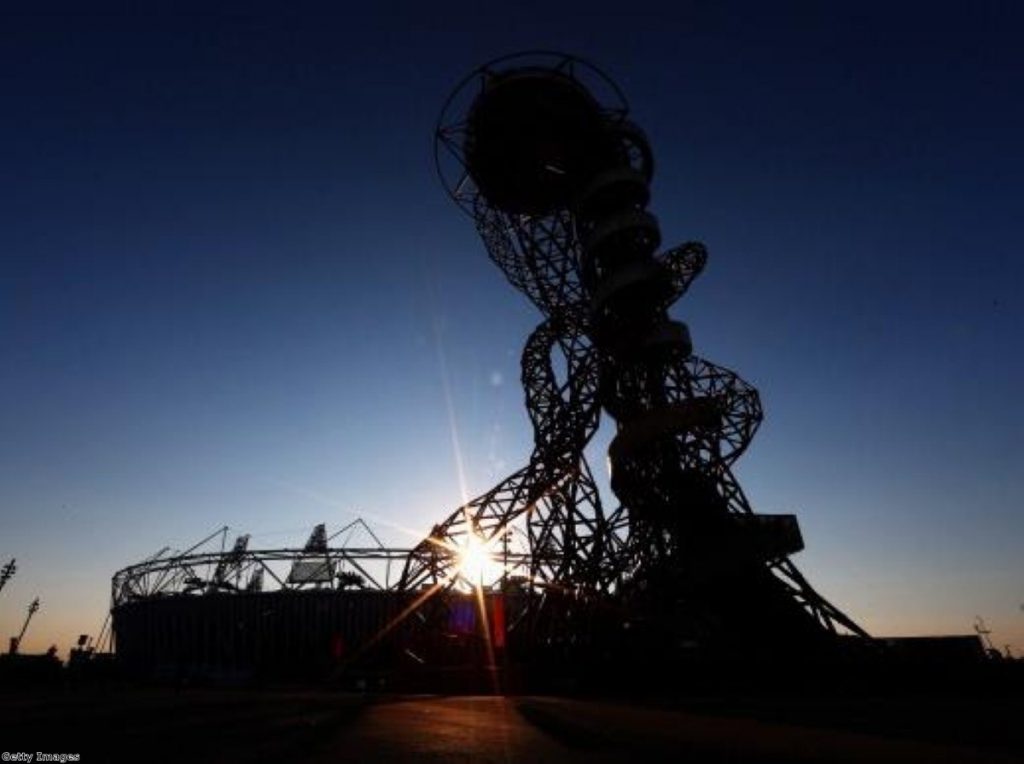‘Fingers crossed’ as Olympics finally arrives
Seven years after winning the right to hold the 2010 Olympic Games, British politicians are holding their breath ahead of tonight's opening ceremony.
Intense excitement surrounding the buildup to the Games has been mixed with concerns about London's ability to cope with transport and security issues, and question-marks over the ambitions of Danny Boyle's 'Isle of Wonder' spectacular.
US presidential candidate Mitt Romney's comments that it was "hard to know just how well it will turn out" have provided a focus for pre-Games nerves from Britain's leaders.
The 'Romneyshambles' overshadowed the Republican's meeting with David Cameron in Downing Street yesterday afternoon.


But this morning the prime minister said outside No 10: "It's going to be an incredible few weeks for our country.
"I think it's a great opportunity to show the world the best of Britain, a country that's got an incredibly rich past, but actually a very exciting and vibrant future."
But yesterday, at a press conference in the Olympic park, he said: "Our fingers are crossed for everything from events to the weather to transport infrastructure and everything else."
London mayor Boris Johnson said this morning that Romney had been "fulsome now in his praise of what we're doing".
He told the Today programme the Olympic spirit was proving irresistible. "It is like a benign sort of virus passing from individual to individual," Johnson told the Today programme.
"I think anthropologists are going to look back and ask what is it about that tiny flickering burning gas that fills people's hearts with such joy?"
On tonight's opening ceremony, set to be a celebration of all things British featuring ex-Beatle Paul McCartney and large chunks of the English countryside, he added: "I think people are going to well up with hot tears of patriotic pride when they see it."
The three-hour event will begin at 21:00 BST and continue for around three hours. Intense speculation about who will light the Olympic flame is viewed as the Games' best kept secret.
Betting has been suspended on 84-year-old Sir Roger Bannister, the first man to run a mile in under four minutes, however.
A global television audience of around one billion is expected for the ceremony, giving Britain an extraordinary opportunity to present its vision of its place in the world.
Not all are happy about the Games, however. London taxi drivers were planning to hold a protest at Hyde Park Corner at 17:00 BST but will no longer be able to do so after being banned by the Metropolitan police.
Their anger over the Games lanes guaranteeing high-speed transit across the capital for athletes, officials and other VIPs has been the centrepiece of frustrations about disruption caused by the Olympics in the build-up to today.
Cameron added yesterday: "This is an extraordinary few weeks for London. We can't say to people life is going to be completely normal – it isn't. I think people have to be prepared for some difficulties as a result of that."
But Bob Crow, general secretary of the RMT union, said: "The iconic London black cab was a central part of the imagery that secured London the Games and, even at this late stage, mayor Boris Johnson should step in and allow them to use the Olympics lanes to help keep the city moving."
Confusion at Lord's cricket ground has already marred the opening day of the Games. Angry spectators were turned away after expecting to get in for free to the 'unticketed' event, which is in fact closed to the public.
Dissent about the Games looks like being drowned out by popular enthusiasm, however. A crowd of 60,000 people welcomed the Olympic torch in Hyde Park yesterday evening on the penultimate leg of its journey around the country.
The torch is travelling along the Thames today before arriving in the Olympic stadium at 23:00 tonight.
Today has already seen the only performance of a nationwide artwork, All The Bells, by Turner prize winner Martin Creed, in which campanologists and others united by ringing bells.
Big Ben tolled 40 times as part of the event shortly after 08:00 – the first time it has ever rung outside its usual pattern since King George VI's funeral in February 1952.
Culture secretary Jeremy Hunt's bell nearly injured a bystander when it flew off its handle while on camera.
He tweeted that the mishap was "my very own Twenty Twelve moment", after the metal bell end flew off in a group of females.












